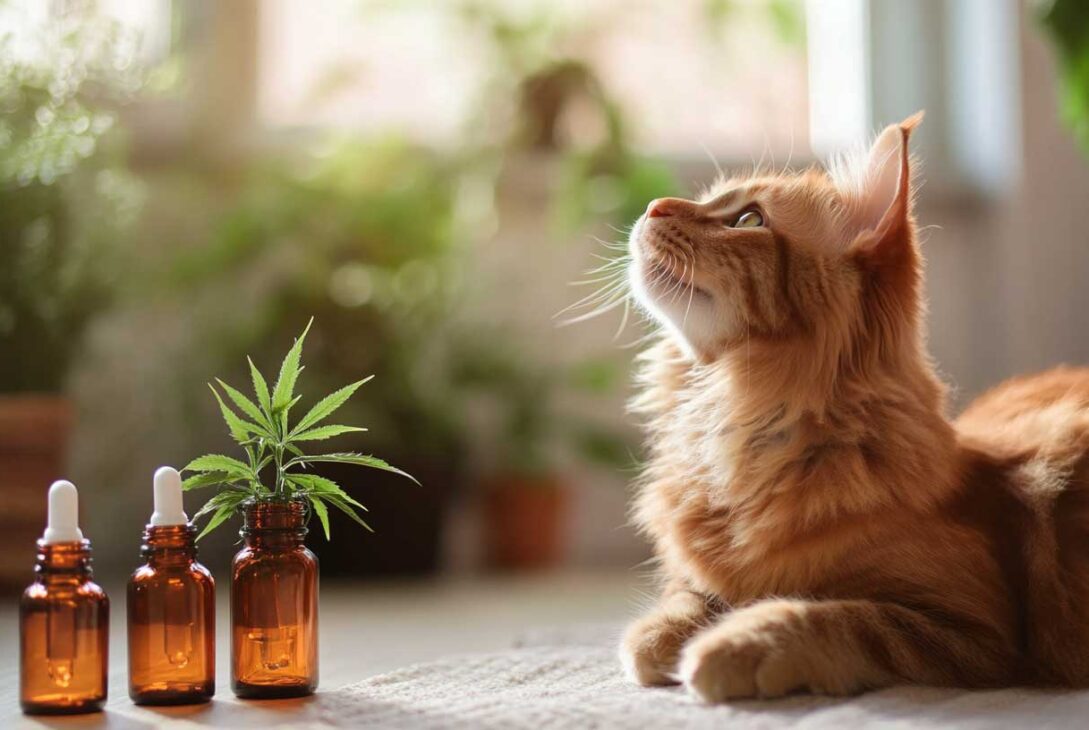Introduction
In recent years, the spotlight on CBD for pets has illuminated a path filled with potential solutions for our furry companions’ various ailments. As pet owners, we always strive to provide the best care for our four-legged family members. Among the myriad options available, CBD has emerged as a natural remedy that excites many. However, with its growing popularity comes the responsibility to understand both the benefits and risks associated with its usage in animals. This comprehensive guide will help you navigate through the world of CBD for pets, focusing on its possible advantages, dosage guidelines, and considerations for safe usage.
Benefits of CBD for Pets
Safe and Natural Treatment Option
CBD, short for cannabidiol, is derived from the hemp plant, offering a multitude of health benefits without the euphoric effects associated with THC (tetrahydrocannabinol). This natural alternative is generally considered safe for both dogs and cats, providing a non-psychoactive solution for various common concerns.
Wide Range of Potential Health Benefits
Research and personal anecdotes from pet owners suggest that CBD can aid in addressing several health issues:
- Anxiety and Stress: Pets often experience anxiety—be it separation anxiety, fear of thunderstorms, or other noisy environments. CBD may help calm these concerns, promoting relaxation and comfort during stressful situations.
- Chronic Pain: Arthritis or injuries can lead to chronic pain in pets. CBD has been noted for its analgesic properties, potentially improving mobility and overall quality of life.
- Inflammatory Problems: For pets suffering from inflammation due to allergies or other conditions, CBD may provide relief by acting on the endocannabinoid system, which helps regulate inflammatory responses.
- Seizures: A growing number of studies point to CBD’s efficacy in reducing the frequency and intensity of seizures in pets, offering a ray of hope for those grappling with epilepsy or similar conditions.
Potential for Addressing Behavioral Issues
Alongside physical ailments, CBD has been observed to assist with behavioral issues in pets. Instances of fear-based aggression or excessive barking can sometimes be alleviated with appropriate CBD usage, leading to a more harmonious household.
Dosage Guidelines for Pets
Calculating the Right Dosage
Dosing CBD for pets isn’t a one-size-fits-all scenario. The appropriate dosage often hinges on both weight and specific health conditions. Here’s a straightforward approach:
- Dogs: A typical dosage range is between 0.1 to 0.5 milligrams per pound of body weight. For instance, a small dog weighing around 20 pounds might start with approximately 5-10 milligrams of CBD per day.
- Cats: Cats generally require less CBD, typically ranging from 2.5 to 5 milligrams per 10 pounds of body weight. As with dogs, starting low and gradually increasing is advisable.
Administration Methods
CBD comes in various forms, each offering its own method of administration:
- Oils and Tinctures: Administering CBD oil directly into a pet’s mouth allows for swift absorption, providing quick relief.
- Treats: CBD-infused treats provide a simpler, more palatable option, appealing to discerning pets while ensuring accurate dosing.
- Topical Applications: For localized relief—such as sore joints—topical absorbed formulas may offer targeted assistance.
Using a CBD Dosage Calculator
Many manufacturers offer dosage calculators on their websites. These tools can help gauge the appropriate starting dose based on your pet’s weight. Nonetheless, always consult your vet when integrating CBD, ensuring a plan tailored to your pet’s unique needs.
Risks and Considerations
Limited Research
Though the potential benefits of CBD for pets are notable, we must recognize the current limitations in research. Comprehensive studies are still emerging, and scientific consensus on effectiveness and safety is ongoing. Understanding these limitations prepares you for any uncertainties.
Cost Implications
Quality CBD can come with a price tag. A pet owner often faces the challenge of finding a product that works effectively, which may involve trial and error across various brands and formulations.
Variability in Product Quality
A crucial aspect of administering CBD is the product’s quality. With the market burgeoning, some brands lack transparency concerning their formulations. Always opt for reputable brands that provide third-party lab tests for their products, offering peace of mind regarding what you give your furry friend.
Lack of FDA Approval
Currently, the FDA has not approved CBD for veterinary use, contributing to a lack of standardized dosing guidelines and safety regulations. This underscores the importance of thorough research and caution when choosing a product for your pet.
Potential Side Effects
While relatively mild, side effects can occur, often manifesting as changes in appetite, diarrhea, or lethargy. These effects are typically dose-dependent, meaning they may be minimized by starting with lower doses and adjusting gradually.
Interactions with Other Medications
If your pet is already on medication or suffers from existing health issues, it’s vital to consult with your veterinarian. CBD could interact with other drugs or influence how they’re metabolized, compelling a tailored approach to treatment.
Conclusion
Identifying the potential of CBD for our pets can be the beginning of a positive journey toward improved wellness. Whether it’s addressing anxiety, chronic pain, or other conditions, CBD offers a natural alternative that many pet owners are eager to explore. However, this excitement must be balanced with responsibility:
- Always talk to your veterinarian before starting any new treatments, ensuring the chosen approach is safe for your beloved companion.
- Select high-quality, pet-specific CBD products that provide transparency concerning their formulations and practices.
- Carefully monitor your pet’s response to CBD and be prepared to adjust dosages as necessary. Keeping an eye on any changes—positive or negative—can greatly inform the ongoing treatment plan.
By combining knowledge with caution, you can provide the benefits of CBD to your pet while minimizing potential risks. This thoughtful approach ensures your furry friend lives a happier and healthier life.
Next Steps
Taking steps toward incorporating CBD into your pet’s care plan? Here are actionable recommendations:
- Consult with Your Veterinarian: Open a dialogue about the potential of CBD for your pet’s specific needs.
- Research Reputable Brands: Look for companies known for quality assurance and good customer feedback.
- Monitor and Adjust: Keep a detailed diary of your pet’s behavior and health changes to support ongoing adjustments with your vet.
With careful consideration and informed decisions, you can explore the potential of CBD as a valuable component of your pet’s wellness toolkit.




















